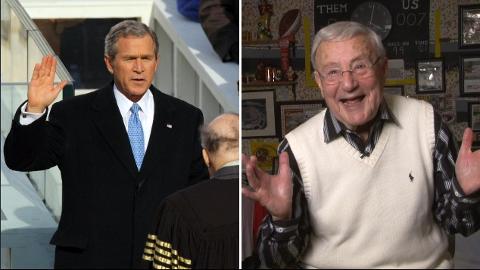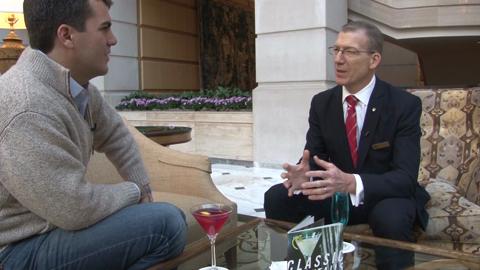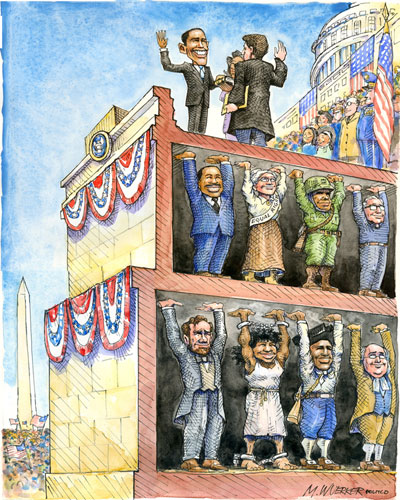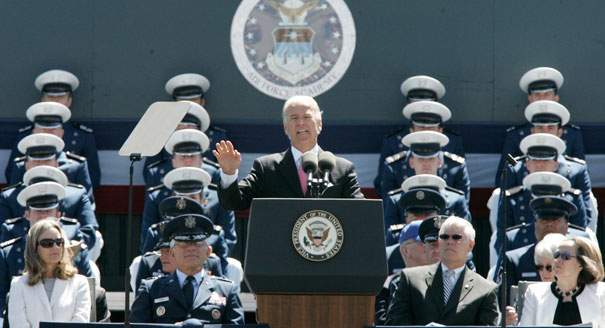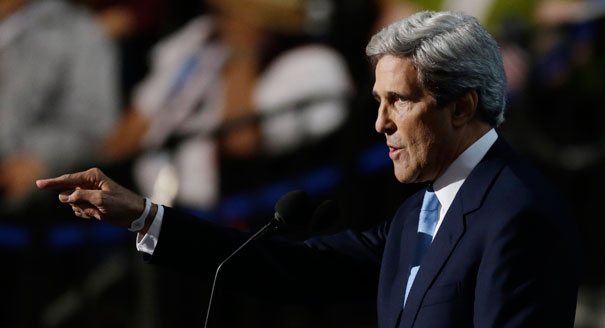Pentagon slaps down Guantanamo prosecutor
The Pentagon delivered an embarrassing public blow Friday to the chief prosecutor for the military commissions at Guantanamo Bay, Brig. Gen Mark Martins, rejecting his request that certain charges against the alleged September 11 plotters there be dismissed in order to reduce legal uncertainty about the cases.
Martins announced last week that he was seeking to drop the conspiracy charge in the military commission case against Khalid Sheikh Mohammed and four of his alleged cohorts. The prosecutor said a federal appeals court ruling in October throwing out a material support of terrorism charge in a case against an alleged driver for Osama bin Laden raised questions about the viability of conspiracy charges in other pending cases.
The appeals court's decision set off a debate within the administration about how to proceed, according to reports in the New York Times. Martins reportedly wanted to drop the issue and the pending conspiracy charges, while some at the Justice Department wanted to pursue a pending appeal in another military commission case and leave the conspiracy charge as is. The Times also reported a split at the Justice Department, with Attorney General Eric Holder overruling Solicitor General Donald Verrilli to persist in the appeal.
On Friday, the Pentagon issued a press release saying that the convening authority for the military commissions, retired Vice Admiral Bruce MacDonald, had rejected Martins's request to drop the conspiracy charges.
"The convening authority noted that dismissal at this time would be premature, as the viability of conspiracy as a chargeable offense in trials by military commission is still pending appellate review," said the Pentagon release, which did not identify MacDonald by name. The release said he noted that "Congress included conspiracy as a chargeable offense in the Military Commissions Acts of 2006 and 2009, and that two Presidents had signed those Acts into law," that the Justice Department maintains the charges are still viable and the issue has not been definitively decided by the courts.
The situation is awkward for Martins not just because of the disagreement, but because he'd been quite public about his view of the issue: issuing a press statement and granting a lengthy interview to the blog Lawfare to discuss the matter. Martins is also regarded extremely favorably, perhaps even reverentially, in the national security law community.
"I don’t think this contributes to public confidence in the administration of justice before the military commissions," said Eugene Fidell, who teaches military law at Yale Law School. "What you see here is a very rickety structure driving the train....It shows how strange this system is that it is unwilling to allow a chief prosecutor to proceed as he sees fit in a matter of legal strategy and legal judgment."
Fidell said the reversal of Martins's position may have been intended to bolster the Justice Department's position in the conspiracy case pending in the D.C. Circuit.
One Guantanamo defense lawyer said Friday that the action underscores defense complaints about the structure of the system.
"The Convening Authority's decision to require a charge to go forward when the Chief Prosecutor says that it is not legally viable demonstrates that the Convening Authority is in no way a neutral body," said James Connell, an attorney for one of the 9/11 defendants. "The Convening Authority's attempt to drive the prosecution forward shows that the military commission structure is fundamentally unfair.”
Connell's statement also said that Martins filed a motion with the military commission judge on Wednesday acquiescing with "certain conditions" in a defense motion to dismiss the conspiracy charge. There is no sign on the public docket at this point that Martins has withdrawn or modified his filing on that point.
Former Guantanamo prosecutor Morris Davis said the disagreement undermines the notion that it was well-established that conspiracy was a law-of-war crime back in 2011.
"We can't agree within our own government yet we're charging people with it, saying ten years ago they should have known it was criminal conduct," Davis said. "It's a bit of an odd argument."
Davis also said he agrees with Martins that keeping the charge in the 9/11 case is unwise. "The KSM trial doesn’t rise or fall on conspiracy and it seems rather foolish to add in an offense that’s dubious or wait months and months on an answer when it's really not necessary," the former prosecutor said.
UPDATE (Friday, 4:51 P.M.): This post has been updated to correct a typographical error.
